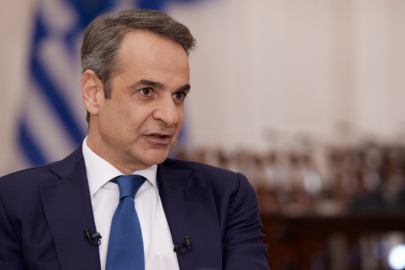The Greek government is preparing for the resumption of direct exploratory contacts with Turkey in January 2021. In the past six months, despite systematic preparations, the resumption of exploratory contacts between the Greek and Turkish Foreign Ministries has been thwarted twice, as the Turkish President became enraged by Greek diplomatic initiatives and reached the point of openly threatening Athens with war.
The signing of an agreement for the partial demarcation of the Exclusive Economic Zone between Greece and Egypt on August 6 made the Turkish government apparatus torpedo the resumption of exploratory contacts that had been agreed to be announced on August 7. Erdogan effectively cancelled the resumption of the dialogue aimed at delimiting maritime zones between Greece and Turkey, for the second time on October 12, when he sent the ship “Oruc Reis” for seismic surveys off Kastelorizo, despite the fact that on October 8 Greek Foreign Minister Dendias and his Turkish counterpart Mevlüt Çavuşoglu had agreed to sit at the dialogue table.
also read
Covid-19 lockdown – Schools set to open on January 8th
Today, despite the fact that the direct channels of communication between Athens and Ankara seem to be closed, rumours say that Berlin and Washington are urging both sides to engage on the thorny issues of maritime demarcation. Through informal negotiations and behind-the-scenes initiatives, German and American diplomats are making systematic efforts to persuade the Greek and Turkish governments to set a date for a meeting of a group of Greek diplomats and lawyers with Turkish experts.
Using as an example the Greek-Egyptian agreement on the partial delimitation of the EEZ, the agreement of Athens and Rome on the delimitation of maritime zones in the Ionian Sea and the agreement with Albania on the referral of the delimitation of maritime zones to the International Court of Justice of international relations, officials involved in shaping policy argue that it is time for experts, diplomats and lawyers with experience in achieving compromises to sit at the table and achieve the maximum possible for the Greek interests.
The main question is how the Turkish side will come to the table of talks: With an agenda that will include claims for the supposed “blue homeland”; the confinement of Greek islands within the Turkish continental zone; the effective negation of the influence of the Greek islands in the sea beyond the zone of 6 nautical miles from their shores or the unfounded theories about gray zones and islands in the Aegean, whose territorial rights are supposedly unclear? In such a case, can the Turkish maps of the “blue homeland” be considered unsupported, without legal basis or … irrelevant to the debate regarding the Aegean east of the 25th meridian being depicted as under Turkish control, and how should the Greek government react if the Turkish negotiating team raises such claims?
Until the next European Council on March 25, 2021, on the eve of the 200th anniversary of the Greek Independence in 1821 from the Ottoman occupation, Europe appears to be like an inactive bystander watching Erdogan implement the Turkish revisionist strategy. On the issue of how the Turkish regime is likely to act towards Greece and Cyprus in the next three months, with the threat of European sanctions looming, there are three main scenarios:
1. Erdogan will cease provocations and adopt a wait-and-see stance, in an effort to show goodwill and try to re-establish relations with the new US administration under Joe Biden. This scenario is gaining weight after the announcement that for the next six months the “Oruc Reis” will conduct seismic surveys in Turkish territorial waters, above the Turkish continental shelf, off the coast of Antalya.
2. The Turkish President will choose to repeat his provocative activities in the Eastern Mediterranean and the Aegean, attempting to usurp maritime zones in which Greece and the Republic of Cyprus have full sovereign rights.
3. Erdogan will set fire to the scene starting seismic surveys west of the 28th meridian or will dispatch drilling rigs in the sea area between Rhodes and Kastellorizo. The Greek government, both the Prime Minister’s Office and the relevant directorates in the Ministries of Foreign Affairs and National Defence, are working on the three basic scenarios: the good, the bad and the really bad.



































